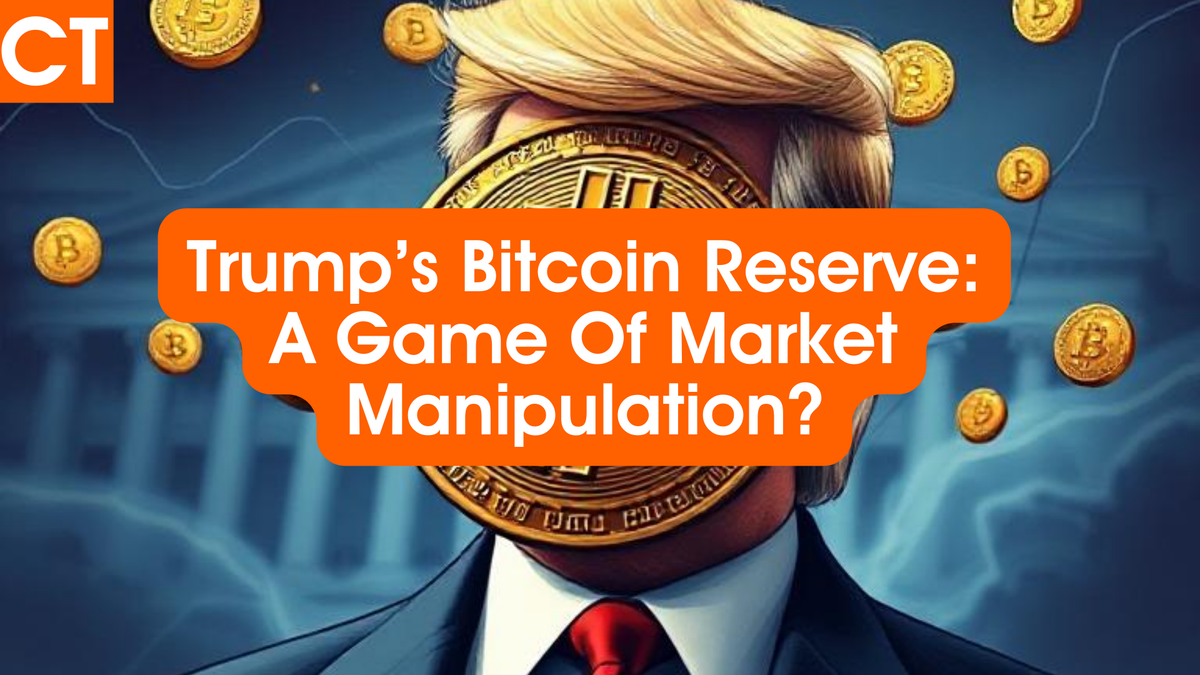Trump’s Bitcoin Reserve: A Psychological Game to Control Market Sentiment?

President Donald Trump has made headlines once again by signing an executive order establishing a Strategic Bitcoin Reserve, positioning the U.S. as a key player in the digital asset space. This move, part of a broader push to make America the global leader in cryptocurrency, has triggered significant market reactions, raised regulatory questions, and revealed deeper psychological motivations behind Trump’s decision.
Short-Term Market Reactions: Hype, Volatility, and Speculation
The announcement sent Bitcoin soaring over 10% to $94,000, adding more than $300 billion to the total crypto market cap. However, when investors realized that the reserve would be built from seized assets rather than fresh government purchases, Bitcoin dropped 4% before stabilizing at $88,000-$90,000 (The Atlantic).
Meanwhile, altcoins surged, with Cardano spiking over 60%, XRP rising 35%, and Ethereum gaining 13% as traders speculated on their inclusion in the reserve. However, Bitcoin’s dominance initially fell below 50% before rebounding as investors recalibrated expectations (Investors).
Large institutions reacted cautiously—some viewing this as a major step toward crypto legitimacy, while others remained skeptical, noting that the executive order lacked concrete purchasing plans. Retail traders, however, rushed in, leading to $225 million in leveraged position liquidations in just hours (NY Post).
Long-Term Impact: Institutional Legitimacy and Global Competition
While the immediate market reaction was volatile, the long-term effects of the U.S. holding Bitcoin are significant:
- Institutional Adoption: The U.S. officially recognizing Bitcoin as a reserve asset legitimizes it for pension funds, hedge funds, and corporate treasuries, which could drive more long-term investment.
- Regulatory Clarity: The government’s involvement will force agencies like the SEC and CFTC to define clearer rules for taxation, custody, and institutional use.
- Global Financial Strategy: Other nations may now consider stockpiling Bitcoin as a hedge against fiat devaluation, creating a potential global Bitcoin reserve race. Nations wary of U.S. dominance, like China, may respond by doubling down on gold or central bank digital currencies (CBDCs) (Business Insider).
Additionally, the decision to hold rather than sell seized Bitcoin removes over $17 billion worth of BTC from circulation, reducing potential downward pressure from future auctions (FT).
Psychological Motivations Behind Trump's Move
Trump’s decision is not just about economic policy; it is deeply rooted in psychological and strategic thinking:
- Legacy Building: By positioning the U.S. as the global crypto leader, Trump is crafting a tech-forward presidential legacy, much like Nixon’s decision to abandon the gold standard reshaped global finance (NY Post).
- Social Proof & Influence of Advisors: Trump’s reliance on figures like David Sacks, his newly appointed "crypto and AI policy czar," suggests that expert validation played a key role. The psychological concept of social proof—trusting the judgment of influential figures—may have reinforced his shift toward Bitcoin.
- Cognitive Dissonance & Rebranding: Trump previously criticized crypto as "dangerous," but this drastic shift could be a classic case of cognitive dissonance—reconciling past skepticism with new political and economic opportunities (Business Insider).
- Sensation-Seeking & Risk Tolerance: Trump’s history of bold, high-risk moves aligns with sensation-seeking behavior, a personality trait linked to thrill-seeking and unconventional decision-making (FT).
Final Thoughts: Bold Move or Political Stunt?
Trump’s Strategic Bitcoin Reserve is a groundbreaking policy shift that could solidify Bitcoin’s role in global finance. In the short term, the move spurred market volatility, but in the long run, it could accelerate institutional adoption, regulatory clarity, and global financial shifts.
Whether this is a strategic economic play or a high-risk political maneuver, one thing is clear—crypto is no longer on the fringes; it is now a central topic of U.S. financial policy. Expect further market movements, geopolitical ripple effects, and continued regulatory debates in the months ahead.
